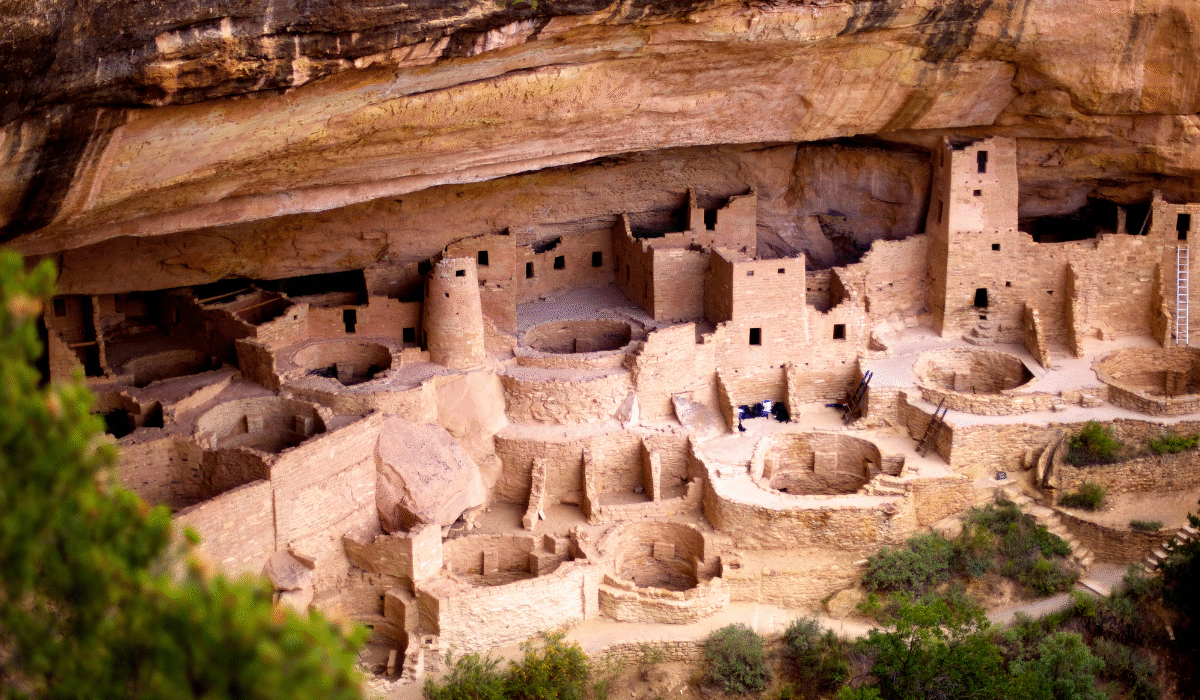Beneath the azure waters of the Atlantic, a mystery sleeps—a legend that has captivated the imagination of philosophers, explorers, mystics, and scientists for more than two thousand years. Atlantis: a name that evokes visions of golden temples, high technology, and a civilization far ahead of its time. Was it ever real? Or is it simply an enduring myth designed to reflect humanity’s dreams and warnings? As with many great enigmas, the truth of Atlantis lies tangled in the tapestry of time, where myth, history, and speculation blur.
The story of Atlantis begins not with archaeological discovery, but with the pen of one of history’s greatest philosophers: Plato. Since he first described the fabled island in his dialogues “Timaeus” and “Critias,” Atlantis has refused to vanish from cultural consciousness. Yet what Plato wrote was both simple and complex—a tale of a utopian empire that fell to divine wrath. Was it a political allegory, a historical record, or a myth with roots deeper than we dare imagine?
Plato’s Atlantis: The Tale That Started It All
The only known source that provides detailed information about Atlantis is Plato, writing around 360 BCE. In his dialogues, he recounts a conversation between the Athenian statesman Critias and Socrates. Critias, speaking of a tale passed down from his ancestor Solon, describes a powerful island nation beyond the Pillars of Heracles—what we now call the Strait of Gibraltar.
According to Plato, Atlantis was a mighty and advanced civilization that existed 9,000 years before his time. The Atlanteans lived on a vast island larger than Libya and Asia combined, and their society was marked by technological sophistication, architectural marvels, and spiritual enlightenment. They built concentric rings of land and sea, adorned temples with orichalcum (a mysterious red metal), and maintained a just and moral society—at least for a time.
But, as Plato tells it, the Atlanteans grew arrogant. They sought to conquer other lands, including Athens, but the Athenians repelled them. In response to their hubris, the gods punished Atlantis. In a single day and night of catastrophic earthquakes and floods, the island sank beneath the ocean.
The question that has haunted scholars ever since is whether Plato meant for this tale to be taken as historical fact or philosophical allegory. Did Atlantis really exist, or was it a cautionary tale about the dangers of imperial ambition and moral decay?
Lost in Translation: Decoding Plato’s Purpose
Plato was not merely a storyteller; he was a philosopher, using allegory and myth to convey complex ideas. In the Republic, he uses the Allegory of the Cave to explore knowledge and enlightenment. So, was Atlantis simply another metaphor?
Many academics argue that Atlantis was a fictional device—a way for Plato to contrast the virtuous ideal of Athens with the decadent downfall of a powerful empire. Atlantis, in this view, was never meant to be taken literally, but rather as a moral lesson about the perils of unchecked ambition and the loss of virtue.
However, there are intriguing details in Plato’s account that suggest he may have drawn on real historical or geographical knowledge. He claims that Solon, the great Athenian lawmaker, learned of Atlantis from Egyptian priests during his travels to Sais. These priests reportedly had access to ancient records documenting the rise and fall of Atlantis. Could there have been a kernel of historical truth hidden within the philosophical tale?
Clues from the Past: Ancient Echoes of a Lost Civilization
While Plato’s is the only known detailed account of Atlantis, other ancient cultures spoke of sunken lands and forgotten empires. The Greeks, Egyptians, Babylonians, and even the Mayans all have myths of great floods, celestial punishments, and sunken lands.
The Sumerian Epic of Gilgamesh tells of a great deluge that wiped out much of humanity. Hindu texts like the Mahabharata and the Puranas describe advanced civilizations and cataclysmic wars with celestial weapons. In Mesoamerican legends, cities like Aztlán—the mythic home of the Aztecs—bear a phonetic and conceptual resemblance to Atlantis.
Are these merely cultural coincidences, or do they suggest a shared memory of a cataclysmic event? Could there have been an ancient civilization, now lost to time and tectonics, whose memory survives as fragmented myth across the globe?
Geological Possibilities: Could Atlantis Have Existed?
If Atlantis did exist, where might it have been? Over the centuries, hundreds of theories have emerged, each placing Atlantis in a different location—each more intriguing than the last.
One of the most popular candidates is the Mediterranean island of Santorini (ancient Thera), home to the Minoan civilization. Around 1600 BCE, a massive volcanic eruption devastated the island, causing tsunamis and possibly contributing to the decline of the Minoans. The Minoans were an advanced maritime culture with art, architecture, and trade networks that rivaled later civilizations. The timeline doesn’t align with Plato’s 9,000-year figure, but many scholars argue this number was either symbolic or mistranslated.
Others look to the Atlantic Ocean itself. The Azores, a group of islands west of Portugal, sit on a tectonic fault line and have features consistent with sunken landmasses. Early 20th-century explorers claimed to have found underwater structures there, though these claims remain controversial.
Still others propose locations in the Caribbean, the Sahara Desert (which was once a lush green region), or even Antarctica. While none of these theories have been definitively proven, the diversity of hypotheses speaks to the enduring allure—and ambiguity—of Atlantis.
Underwater Cities and Archaeological Puzzles
Despite centuries of searching, no definitive ruins of Atlantis have ever been found. Yet underwater archaeology has revealed astonishing discoveries that fuel the mystery. Off the coast of India, the submerged ruins of Dwarka suggest that ancient cities were once lost to the sea. In the Gulf of Cambay, sonar mapping revealed geometric structures beneath the waves, suggesting a sunken settlement over 9,000 years old.
In the Bahamas, the so-called “Bimini Road” is often cited as evidence of Atlantis. Discovered in 1968, this underwater rock formation consists of large rectangular blocks that some believe were once part of a man-made structure. Skeptics argue they are naturally occurring beachrock, but believers see in them the remnants of Atlantean architecture.
Then there’s Yonaguni, off the coast of Japan. Submerged rock formations there resemble pyramids, terraces, and staircases. While many geologists maintain they are natural, others suggest they are remnants of a prehistoric civilization. Each of these sites remains controversial, but collectively they suggest that humanity’s ancient past may hold more secrets than we currently understand.
The Atlantis Obsession: From Renaissance to Modern Times
The Renaissance rekindled interest in classical texts, and with it, Atlantis re-emerged from philosophical obscurity. Thinkers, explorers, and mystics seized on the idea of a lost golden age, and theories multiplied. Sir Francis Bacon imagined “New Atlantis” as a utopian society founded on scientific principles. In the 19th and early 20th centuries, spiritualists like Madame Blavatsky claimed to channel ancient Atlantean knowledge.
Atlantis became a symbol—of lost wisdom, of the ideal society, of human potential and hubris. Writers like Jules Verne and H.P. Lovecraft reimagined it in fiction, while fringe theorists like Ignatius Donnelly argued for its historical existence in best-selling books. Donnelly’s 1882 work, Atlantis: The Antediluvian World, proposed that all ancient civilizations descended from Atlantis, igniting a wave of pseudoscientific exploration.
In the modern era, Atlantis continues to capture imaginations. Documentaries, novels, and conspiracy theories thrive. From alien connections to energy crystals, the Atlantis myth has evolved far beyond Plato’s original vision—yet remains rooted in our yearning to uncover a forgotten chapter of human history.
Atlantis and the Collective Unconscious
Why does the idea of Atlantis persist so powerfully? Perhaps it’s because it taps into the human psyche at a deep level. Carl Jung, the father of analytical psychology, believed that myths express archetypes of the collective unconscious—universal themes and patterns that emerge across cultures. Atlantis, then, may represent our longing for a lost paradise, a time when humanity lived in harmony with nature and with itself.
At the same time, Atlantis serves as a warning. Like the biblical story of the Tower of Babel, it speaks to the dangers of pride and overreach. The Atlanteans fell not because they lacked power or knowledge, but because they abused it. In this way, Atlantis remains eerily relevant in an age of rapid technological progress and environmental peril.
Whether real or imagined, the myth of Atlantis holds a mirror to our desires and our fears. It asks us not only what was lost, but what might still be found—if we are wise enough to listen.
The Search Continues: Science, Technology, and the Deep
Advances in technology have given new hope to those who seek Atlantis. Satellite imagery, sonar scanning, and deep-sea exploration have opened up vast areas of the ocean floor previously hidden. Digital mapping of tectonic plates and sea levels offers clues about ancient coastlines and possible submerged lands.
The field of paleoclimatology—studying ancient climates—helps us understand how shifting ice ages and sea levels may have submerged entire regions. Once-dry plains are now ocean floors. Could the remains of Atlantis be hiding beneath miles of sediment, waiting to be revealed?
As the tools of discovery evolve, so too does the possibility that we may one day stumble upon definitive evidence—an inscription, a structure, a cultural artifact—that answers the question once and for all. Until then, Atlantis remains the ultimate archaeological quest: the Holy Grail of lost civilizations.
Final Thoughts: Between Myth and Memory
Atlantis is many things: a myth, a metaphor, a memory. It is a story told across millennia, from the pages of Plato to the depths of the digital ocean. It is a reflection of humanity’s greatest hopes and deepest fears. Whether it existed as a real place or as an ideal in the mind of a philosopher, Atlantis continues to challenge us to question what we know about the past—and to dream about what might lie hidden beneath the surface of the world.
Perhaps the true secret of Atlantis is not whether it existed, but what it reveals about us: our hunger for truth, our reverence for lost knowledge, and our refusal to let legends die. The waves may have swallowed its stones, but the idea endures—an island of thought adrift in the ocean of history.






